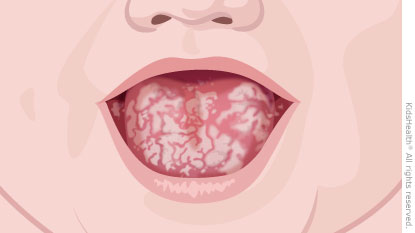Find a Provider
From well-child visits to specialized treatment of complex illnesses and injuries, we offer comprehensive care from an exceptional team of doctors, nurses and allied professionals.
- Parents Home
- Para Padres
- A to Z Dictionary
- Allergy Center
- Asthma
- Cancer
- Diabetes
- Diseases & Conditions
- Doctors & Hospitals
- Emotions & Behavior
- First Aid & Safety
- Flu (Influenza)
- Food Allergies
- General Health
- Growth & Development
- Heart Health & Conditions
- Homework Help Center
- Infections
- Newborn Care
- Nutrition & Fitness
- Play & Learn
- Pregnancy Center
- Preventing Premature Birth
- Q&A
- School & Family Life
- Sports Medicine
- Teens Home
- Para Adolescentes
- Asthma
- Be Your Best Self
- Body & Skin Care
- Cancer
- Diabetes
- Diseases & Conditions
- Drugs & Alcohol
- Flu (Influenza)
- Homework Help
- Infections
- Managing Your Weight
- Medical Care 101
- Mental Health
- Nutrition & Fitness
- Q&A
- Safety & First Aid
- School, Jobs, & Friends
- Sexual Health
- Sports Medicine
- Stress & Coping
Oral Thrush
What Is Oral Thrush?
Oral thrush is a very common yeast infection in babies. It causes irritation in and around a baby's mouth.
What Are the Signs and Symptoms of Oral Thrush?
Oral thrush (also called oral candidiasis) can affect anyone, but is most common in babies younger than 6 months old and in older adults.
A baby with oral thrush might have cracked skin in the corners of the mouth or white patches on the lips, tongue, or inside the cheeks that look a little like cottage cheese but can't be wiped away.
Some babies may not feed well or are uncomfortable when sucking because their mouth feels sore, but many babies don't feel any pain or discomfort.

What Causes Oral Thrush?
Oral thrush is caused by the overgrowth of a yeast (a type of fungus) called Candida albicans.
Most people (including infants) naturally have Candida in their mouths and digestive tracts, which is considered normal growth. Usually, a healthy immune system and some "good" bacteria control the amount of this fungus in the body.
But if the immune system is weakened (from an illness or medicines like chemotherapy) or not fully developed (as in babies), Candida in the digestive tract can overgrow and lead to an infection. Candida overgrowth also causes diaper rash and vaginal yeast infections. Babies can have oral thrush and a diaper rash at the same time.
Candida overgrowth also can happen after a baby has been given antibiotics for a bacterial infection because antibiotics can kill off the "good" bacteria that keep the Candida from growing. Oral thrush also can happen after the use of steroid medicines.
How Is Oral Thrush Treated?
See your doctor if you think your baby may have thrush. Some cases go away without medical treatment within a week or two, but the doctor may prescribe an antifungal solution for your baby's mouth. This medicine is usually applied several times a day by "painting" it on the inside of the mouth and tongue with a sponge applicator.
Depending on your baby's age, the doctor also might suggest adding yogurt with lactobacilli to your baby's diet. The lactobacilli are "good" bacteria that can help get rid of the yeast in your child's mouth.
If your baby keeps getting oral thrush, especially if he or she is older than 9 months old, talk with your doctor because this might be a sign of another health issue.
Can Oral Thrush Be Prevented?
Oral thrush is a common infection in babies, but you can help prevent it:
- If you formula-feed your baby or use a pacifier, thoroughly clean the nipples and pacifiers in hot water or a dishwasher after each use. That way, if there's yeast on the bottle nipple or pacifier, your baby won't be reinfected. Store milk and prepared bottles in the refrigerator to prevent yeast from growing.
- If you breastfeed and your nipples are red and sore, you might have a yeast infection on your nipples, which you and your baby can pass back and forth. Talk to your doctor, who might recommend using an antifungal ointment on your nipples while your baby is treated with the antifungal solution.
To prevent diaper rash, change diapers often.

© 1995- The Nemours Foundation. KidsHealth® is a registered trademark of The Nemours Foundation. All rights reserved.
Images sourced by The Nemours Foundation and Getty Images.


